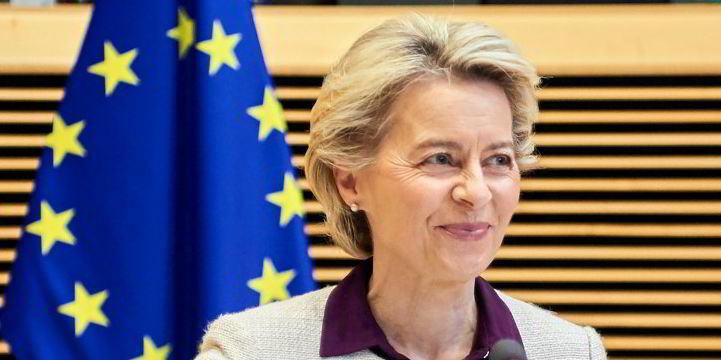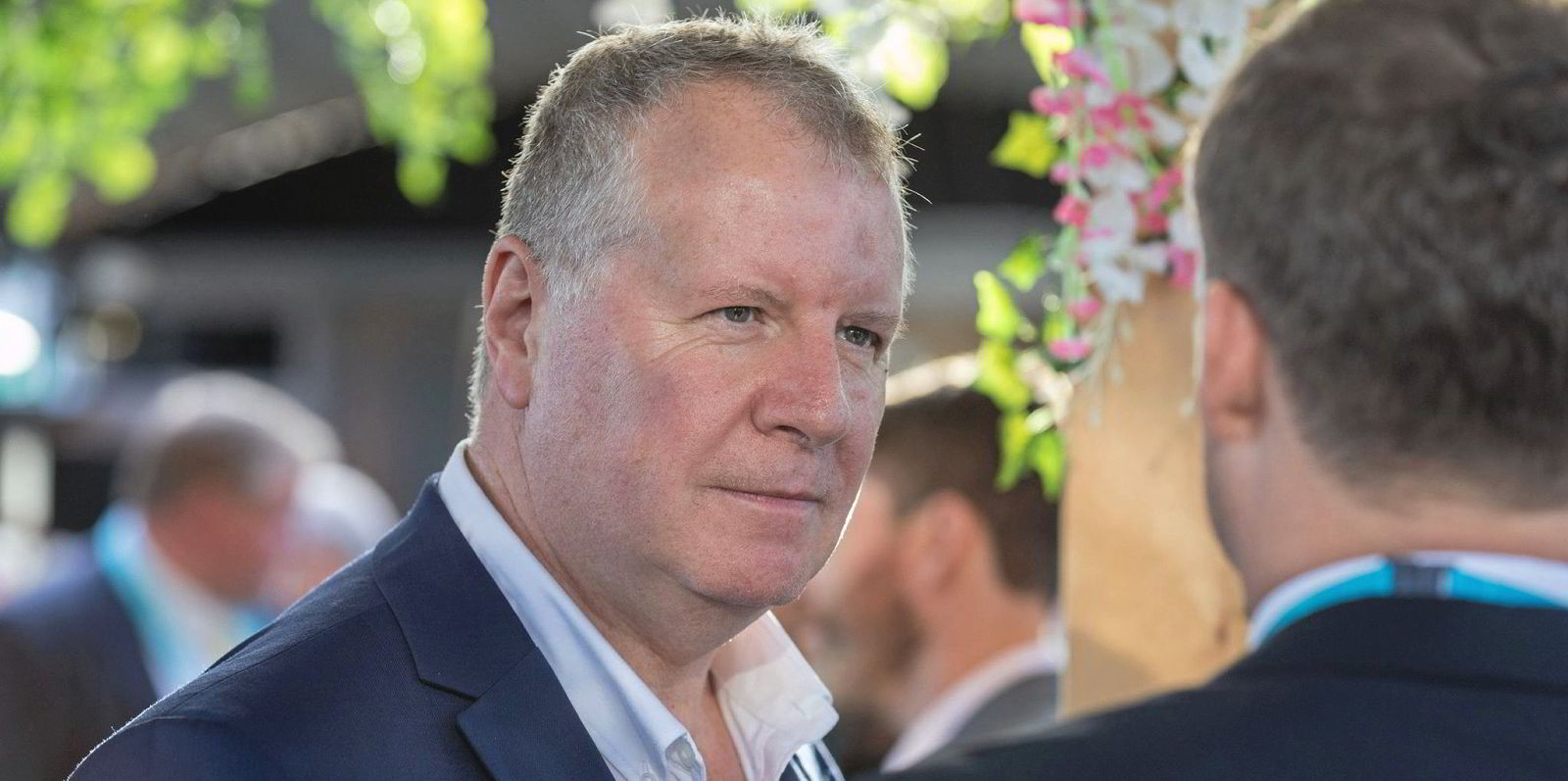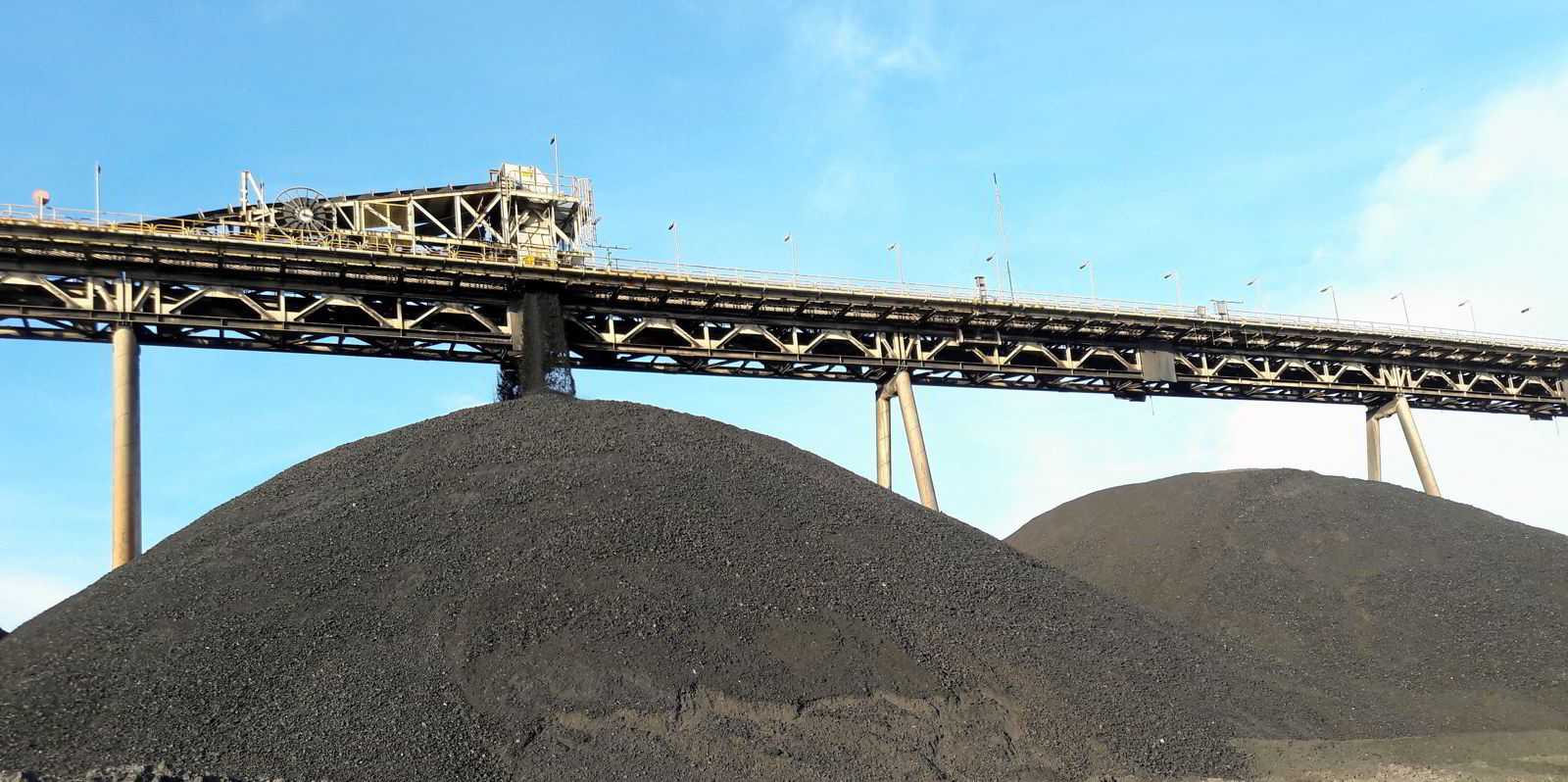The European Commission has proposed new environmental regulations that ask shipping companies and charters to pay for carbon emissions and use greener fuels — in a move to combat climate change that will drive up maritime transport costs.
The European Union Emissions Trading System (ETS) for shipping and FuelEU Maritime initiative were unveiled on Wednesday as part of the long-awaited "Fit for 55" package of climate policies, aimed at reducing the EU’s greenhouse gas emissions by 55% below 1990 levels by 2030.
"We will strengthen the existing system ... and extend it [ETS] to the maritime [sector],” EC President Ursula von der Leyen said in a press conference.
“We need this because we just have to consider that one single cruiseship alone [emits] as much CO2 per day [as] 80,000 cars.”
EC officials suggested the proposals are designed to prompt more adoption of clean technologies and a shift from fossil fuels to low, or zero-emission fuels.
Adina Valean, EU commissioner for transport, said: "In shipping, fossil fuels still account for more than 99% of the fuel mix. By 2035, we want [a] 13% reduction in the greenhouse gas intensity of energy used on board ships."
The proposed rules will apply to shipping companies with vessels of 5,000 gt or larger trading at EU ports. For enforcement purposes, a shipping company is defined as either the shipowner, manager or bareboat charterer that has assumed the responsibility for vessel operation under the International Management Code for the Safe Operation of Ships and for Pollution Prevention, also known as ISM Code.
“The cost implications on shipping will be quite a challenge,” German Shipowners’ Association president Alfred Hartmann said. “However, we do share the same goal as the European Commission: Shipping needs to decarbonise, the sooner the better.”
Incoming and outgoing voyages
Shipping companies will be responsible for all carbon emissions between EU ports and 50% of them for incoming and outgoing voyages.
In an attempt to ease the financial pain, the EC proposed that they will only be liable to 20% of their emissions in 2023, 45% in 2024, and 70% in 2025 — but all in 2026.
Despite opposition from the European Parliament and some shipowners, the EC has decided against setting up a special fund to sponsor innovation in shipping decarbonisation. Shipping will be included in the existing EU ETS based on its proposal.
Some shipping bodies have long suggested regional carbon markets could be detrimental to the talks over a global emissions trading system for shipping at the International Maritime Organization.
“Instead of a volatile Emissions Trading System, which would entail significant administrative burdens for smaller shipping companies to participate in, we would prefer a fixed charge per tonne of fuel, as this would ensure a much-needed price stability and thereby enable companies to plan ahead,” Hartmann said.
Separately, the proposed FuelEU Maritime requires more uptake of alternative, low-carbon fuels from 2025 to help drive down emissions faster.
The regulation has placed a maximum limit on the greenhouse gas intensity of energy used by ships at EU ports, which will be falling progressively based on rolling five-year targets from 2025 to 2050.
Hartmann said fuel suppliers rather than shipping companies should be held responsible for such fuel standards. The proposed rules are “like having to check the quality of the fuel at the petrol station before filling up your car,” he added.
Green lobbyist Transport & Environment said the initiative would boost the use of LNG and “unsustainable biofuels” as marine fuels.
“The EU will start making shipping polluters pay, but by pushing them to use gas and biofuels, the cure will be worse than the disease,” the group’s executive director William Todts said. "We need a green maritime fuel law that promotes genuinely green e-fuels like ammonia instead.”
The EU’s national governments and European Parliament are expected to spend months, or even years, negotiating the final forms of the new regulations due to their contentious nature.
The EC's Frans Timmermans said the details of the green deal proposal might be subject to change after negotiations with member states, even though the overall goals are not.
Alternative proposals
"If one doesn't like parts of the package, one can come up with alternatives that have the same result,” Timmermans said.
In parallel, on Wednesday, the UK renewed its pledges to develop low-emission shipping as part of a national project to decarbonise all modes of domestic transport by 2050.
UK transport secretary Grant Shapps said the country would consider how to take advantage of its “strengths in the maritime sector to support growth in green technology and shipbuilding”.
The UK has yet to include shipping in its post-Brexit Emissions Trading Scheme.






